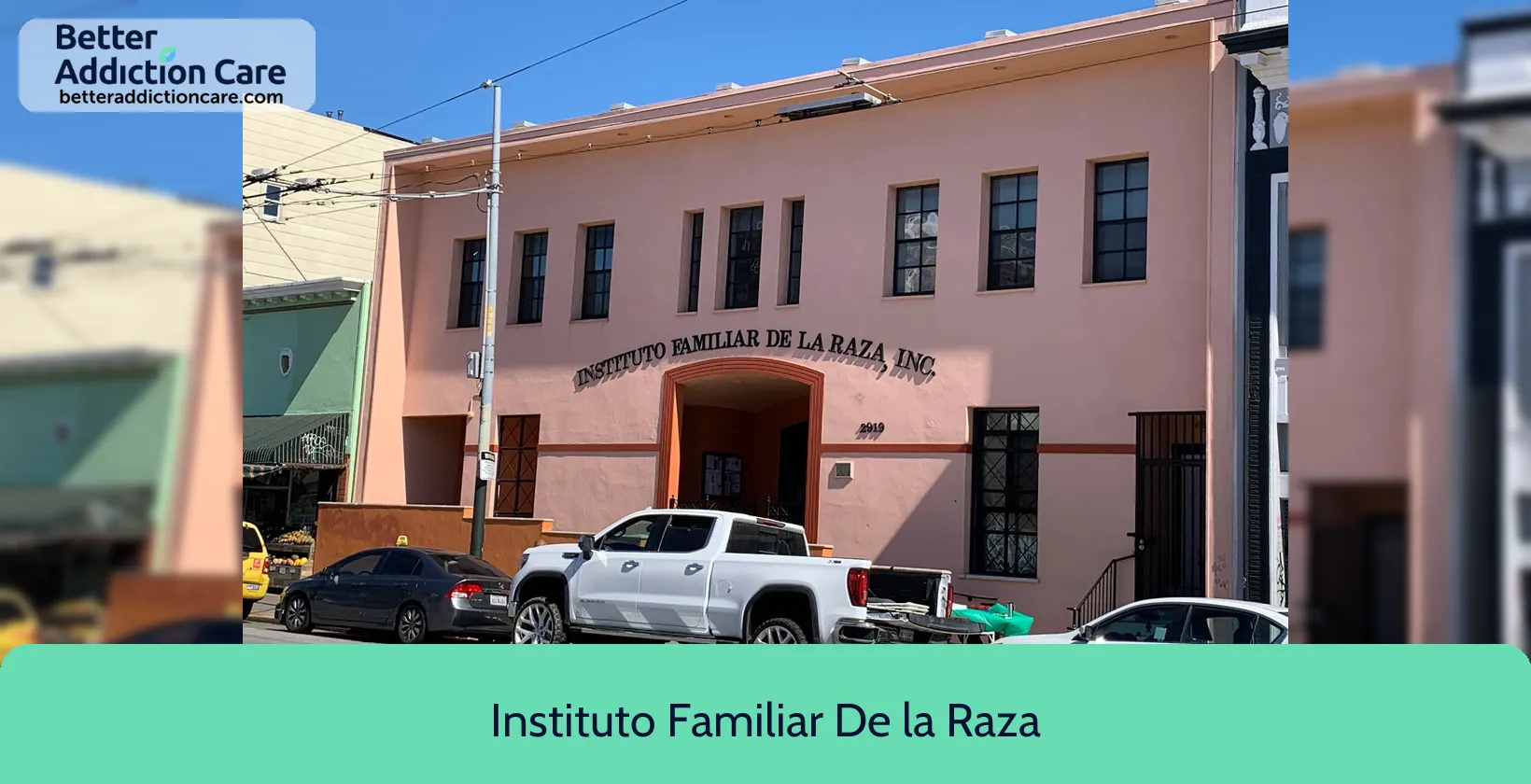Instituto Familiar De la Raza
Overview
Instituto Familiar De la Raza is a mental health treatment center for people seeking treatment near San Francisco County. As part of their treatment modalities for recovery, Instituto Familiar De la Raza provides family counseling, individual psychotherapy, and cognitive behavioral therapy during treatment. Instituto Familiar De la Raza is located in San Francisco, California, accepting county or local government funds for treatment.
Instituto Familiar De la Raza at a Glance
Payment Options
- County or local government funds
- Medicaid
- Cash or self-payment
- State-financed health insurance plan other than Medicaid
- State mental health agency (or equivalent) funds
Assessments
- Comprehensive mental health assessment
Age Groups
- Adults
- Children/adolescents
- Young adults
Operation
- Private for-profit organization
Highlights About Instituto Familiar De la Raza
6.68/10
With an overall rating of 6.68/10, this facility has following balanced range of services. Alcohol Rehabilitation: 8.00/10, Drug Rehab and Detox: 6.00/10, Insurance and Payments: 6.00/10, Treatment Options: 6.73/10.-
Alcohol Rehabilitation 8.00
-
Treatment Options 6.73
-
Drug Rehab and Detox 6.00
-
Insurance and Payments 6.00
Treatment At Instituto Familiar De la Raza
Treatment Conditions
- Mental health treatment
Care Levels
- Outpatient
Treatment Modalities
- Family counseling
- Individual psychotherapy
- Cognitive Behavioral Therapy
- Group counseling
- Experiential Therapy
Ancillary Services
Languages
- Sign language services for the deaf and hard of hearing
- Spanish
Special Programs
- Clients with HIV or AIDS
- Clients who have experienced trauma
- Persons 18 and older with serious mental illness (SMI)
Get Help Now
Common Questions About Instituto Familiar De la Raza
Contact Information
Other Facilities in San Francisco

6.70

6.62

6.96

6.82
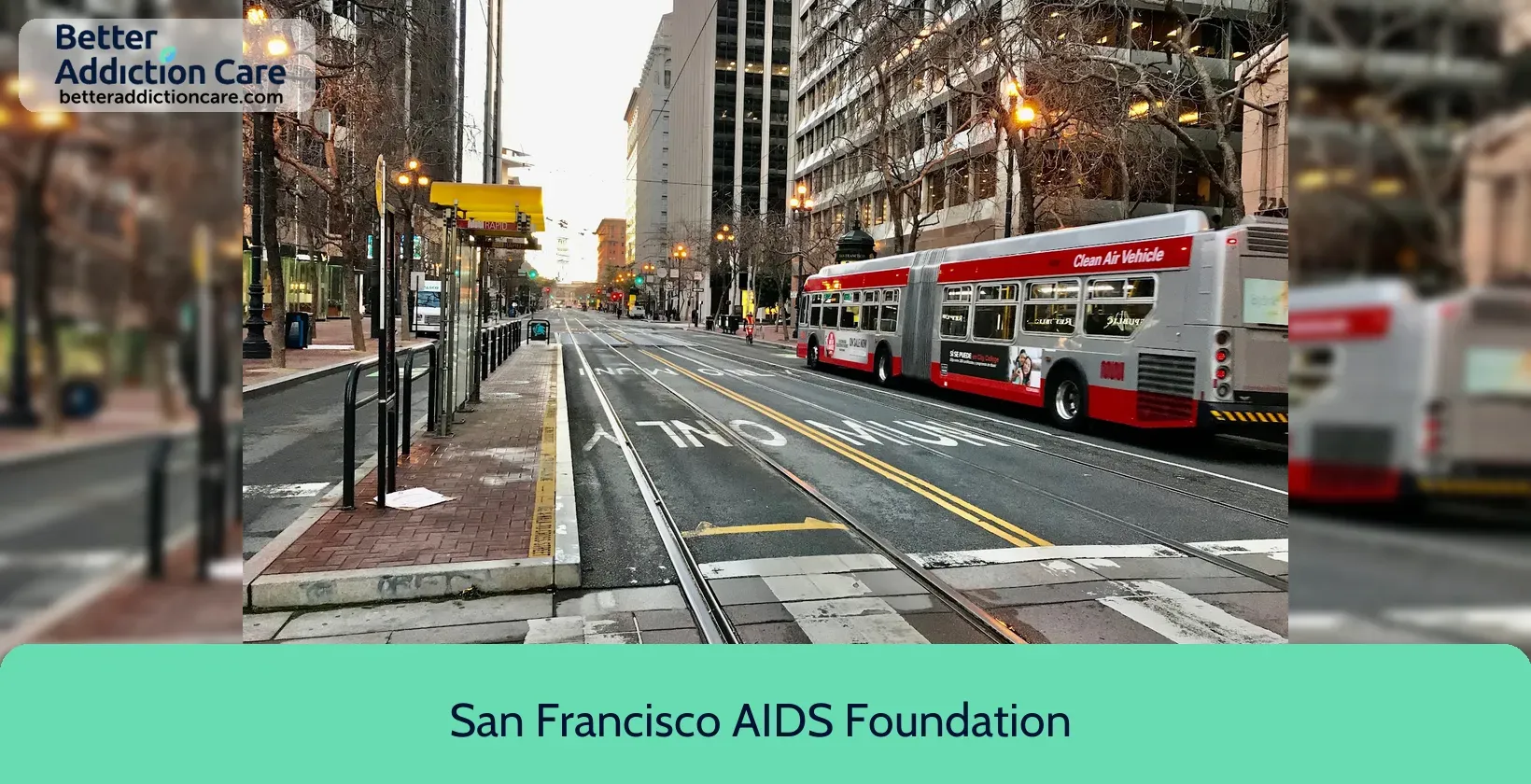
6.50
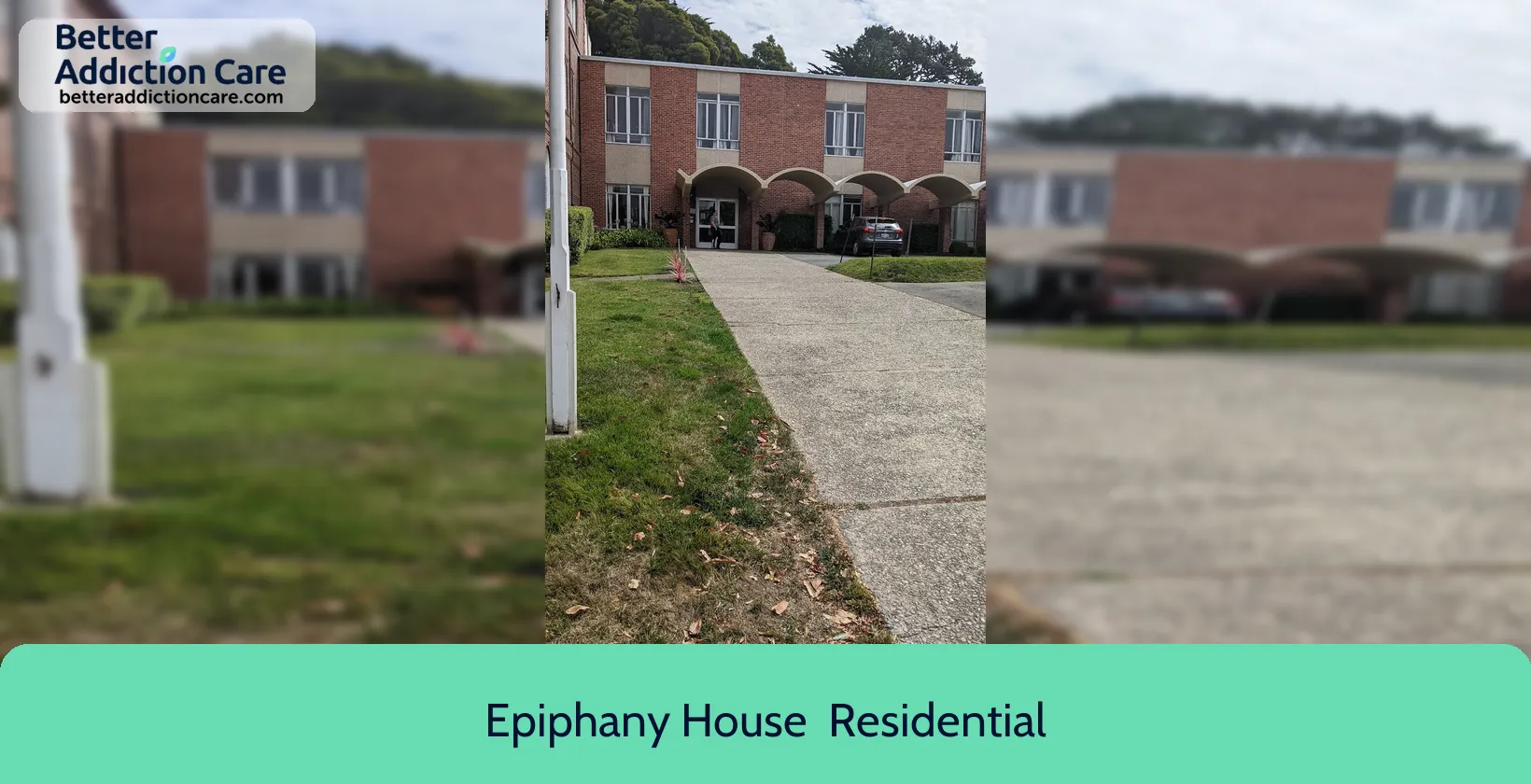
6.71
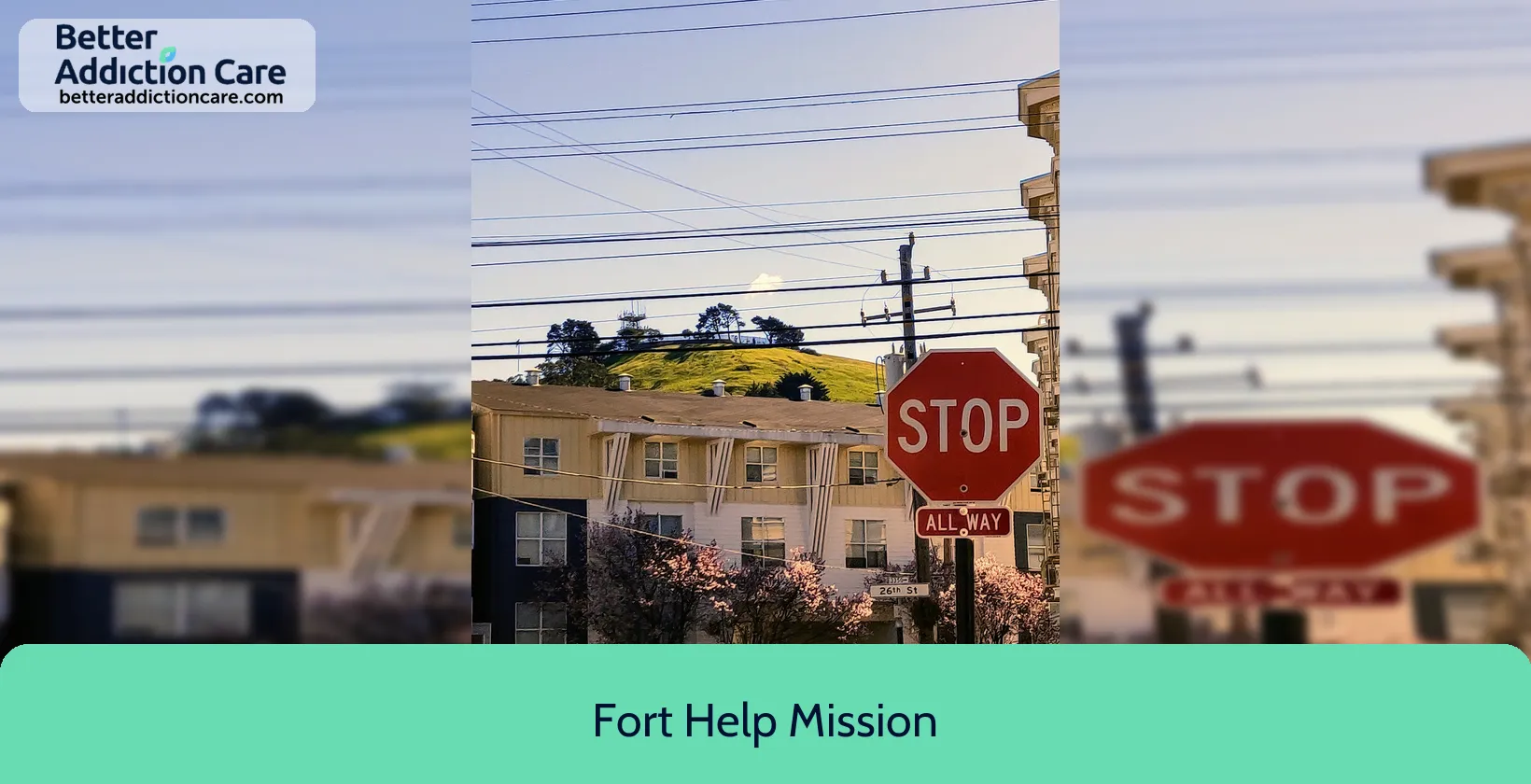
6.50
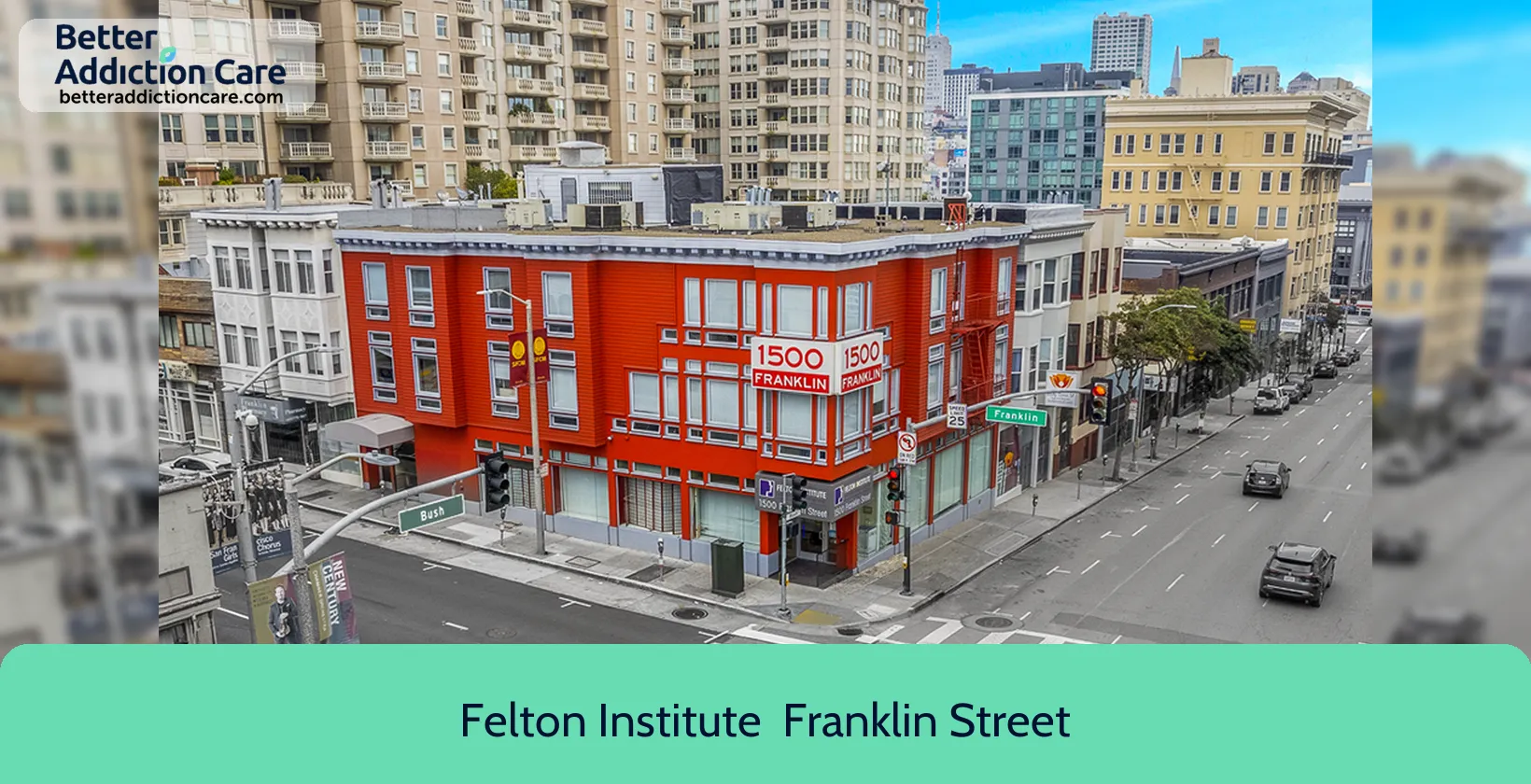
6.74
DISCLAIMER: The facility name, logo and brand are the property and registered trademarks of Felton Institute - Franklin Street, and are being used for identification and informational purposes only. Use of these names, logos and brands shall not imply endorsement. BetterAddictionCare.com is not affiliated with or sponsored by Felton Institute - Franklin Street.
